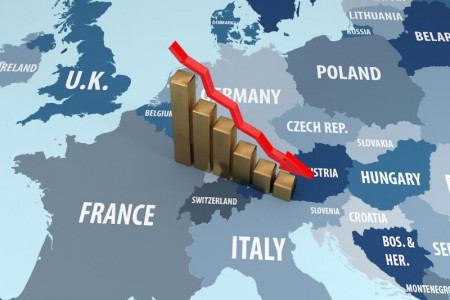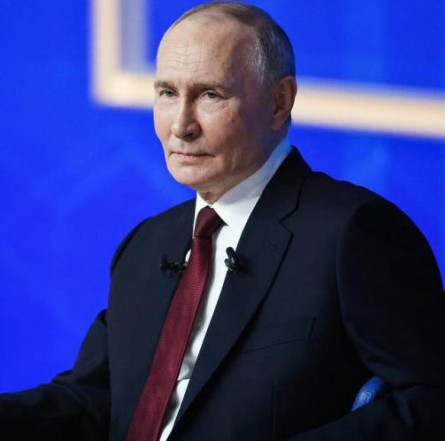
So, Donald Trump is back in the White House. Brussels’ headache has sharpened.
Owing to the continent’s "skillful" leadership by European Commission officials and major powers, bigger economics have been actually suffering an industrial crisis. Eurostat releaseв data that over the past year, relevant production decreased by 1.7 percent, including Germany’s 5.5 percent, Italy’s 3.3 percent, France’s 2.3 percent, while for energy-intensive industries the figure fell by 10-15 percent. In Germany alone, 364 blue chip companies went bankrupt last year, which is 30 percent more than in 2023, and 2025 is predicted to see 25-30 percent more bankruptcies. Industries such as chemicals and automotive have found themselves on the edge of subsistence.
This dynamic seems a paradox if we recall the size of Europe's industrial potential, especially its economic core as represented by Germany, France, Italy, and Spain. Moreover, Europe redistributes a significant part of global rents in its favor, with its financial sector ranking world’s second (after the United States) as regards affecting financial flows. The European high-tech sector also provides a significant inflow of rental income, based on the Europeans’ monopoly in producing many types of particularly complex products. However, economic performance shows that all these factors have been unable to transform into high pace of development over the past years. And if the gap to China or India looks predictable, the one to the United States clearly indicates that market mechanisms work much better in America than in Europe amid their almost equal availability of financial resources and structural characteristics.
Previously, Europe's dynamic development was premised on cheap Russian energy and high demand for its products in Asia and the United States. The European leadership has given up on Russian energy. And by imposing sanctions on Russia’s (and earlier Iran’s) import of relatively inexpensive raw materials and first-processed products, it boosted operating costs for its producers, reducing their competitiveness. At the same time, European manufacturers could not compensate for their withdrawal from the Russian and other markets by reorienting to other ones.
Demand from China has decreased, and competition between European and Chinese goods on the global market has soared. According to the Central Bank, the share of manufacturing sectors where Chinese companies compete directly with eurozone representatives has grown from 25 percent to 40 percent in two decades. And, as practice has shown, the Chinese do business in a better way, making EU's share in world trade slump. Trade tensions with Washington have also been on the rise.
Apart from sanctions and energy policy, there are several other reasons for the EU crisis: politicized macrofinancial and debt policies, growth of bureaucratic barriers, and tax burden on producers. Thus, the European bureaucracy has been tirelessly developing and implementing legislative acts, directives, and regulations that impose severe sanctions for non-compliance, which increases the cost of production in European countries, and therefore an increasing number of those have considered outsourcing their production. Having faced economic stagnation and weaker competitiveness, Europe saw no heated public discussions about the need for large-scale reforms, with Mario Draghi's report on competitiveness discussed by local media for a day or two to forget it right away.
In such an economic environment, EU’s enduring "leadership" in social security system generosity rankings looks surprising. For example, France allocates over 30 percent of GDP to social spending — one of the highest rates worldwide. And many other EU countries follow along with Paris, living essentially on credit. However, amid deteriorating economic prospects, Europeans are going to have a rude awakening. Countries like France, whose budget deficit was 6 percent in 2024 and is predicted at 7 percent in 2025, will struggle to maintain the present social security level. And if EU leaders fail to make "unpleasant" socio-economic decisions in the nearest future, their prospects will worsen even without Trump-threatened tariff measures.
These data show that although leaders in mayor EU countries are fixated on Trump, the main problem causing Europe to lag behind the United States and China in terms of competitiveness is not him but a weaker industrial base. And if Trump carries out his threat to impose up to 20 percent duties on European imports, this will deal a crushing blow on European industry. With over 500 billion euros in annual exports, America is by far the most crucial market for European goods. Trump has insisted on leveling bilateral trade balance, which means that 20 of the 27 EU members that have a trade surplus with the United States may become tariff war targets. In addition, his team is unhappy with European digital fees, the carbon tax and VAT.
Among EU countries, Germany, which exports about 28% of its products, will be the most affected. Germany’s Suddeutsche Zeitung, citing calculations by the Institute for Macroeconomics and Market Research (IMK) in Dusseldorf, expects 300,000 job losses if Donald Trump introduces the duties, and, in general, 1.2 million workers in Germany depend on Washington's decision, the source writes.
Apart from announcing tariffs, Trump has put forward new defense spending requirements for European NATO members. So, at a time when Europe is unable to cope with growing deficits due to declining tax revenues, it faces new financial difficulties already fraught with political and social upheavals.
Adding to the issues is the fact that the EU, with its rich history of inventions and scientific breakthroughs, has now slipped into outsiders. For example, today there is not a single European brand among the 15 best-selling electric vehicles. As former Italian Prime Minister and ECB President Mario Draghi noted in a recent report on Europe's weakening competitiveness, there are only four European companies in the list of the planet’s top-50 tech ones.
Thus, the current situation may well turn Europe's economic issues into a crisis if Trump fulfills his promise. And the European leadership will have to bite the bullet in the near future, which will surely entail radicalized policies, as it happened with Greece during its debt crisis, since neither right nor left populists would miss the chance to attack European countries’ current leadership.


